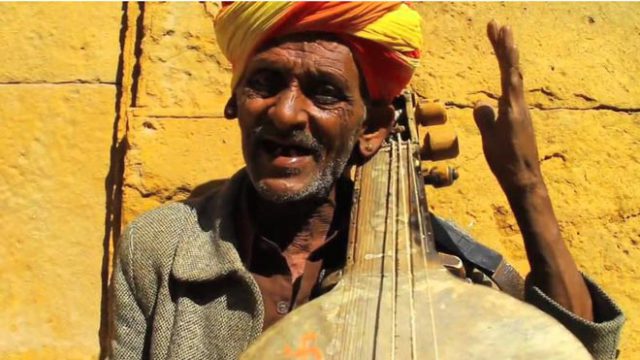If one tries to conceptualise a world without music, it would be impossible. In this war-torn world music is one of the few things that bridges cultures and becomes a medium of communication. Created by man and often attributed to the divine, everyone in the world understands the language of music. Rabindranath Tagore once said, “Music fills the infinite between two souls.” It’s a powerful medium that touches people’s heart and transports them to a world where one lets go of all inhibitions.

Music tells us stories of people, emotions and cultures and at times makes us feel in a way that we didn’t know was possible. India, a culturally diverse country, is known for its wide range of folk music. The tradition of folk songs has a history that both goes way back in time and also continues to evolve. Some of them have come out of the rural areas and have extended to the major cities, and has become an essential part of every Indian’s life as sources of entertainment, religious and cultural expression.

Talking about spiritual expression, the Bauls, a community of mystic minstrels in West Bengal and Bangladesh are known for their soulful music called the Baul Gaan. Their songs have been inspiring the masses from times unknown, though you’ll find certain Baul songs in folk poetry from a thousand years ago, so we’re talking of a really old tradition. Bauls are not a part of any organised religion or caste. Their music is an expression of love and devotion and their religion is an expression of the unity of nature and the soul of man. The sweetness of the language and soothing sound of the iktara has won the hearts of many, including Rabindranath Tagore who was greatly inspired by their music and also incorporated it in his poems and songs. Their music has influenced the way of life of many and with its growing popularity it has made people realise the importance of conservation of such traditions. Through the efforts of Unesco, much of our folk music is seeing a new resurgence.

With the growth of instantly disposable popular culture, it has become more challenging to bring back our old and forgotten folk culture. Pankhida, a song sung by farmers working in the fields in Rajasthan, has remained in the remote villages. So has Panihari, a song sung by women in Rajasthan describing their daily chores, has become more of a memory. Although folk music like the Pandavani of Chhattisgarh, which tells the story of the Mahabharata, and Baul made it to the cities, they need more recognition. Our folk songs are a reflection of our deep and diverse culture, and an indispensable part of rural lives. From weddings to daily chores to sex education, there’s a song for every occasion.
Conservation is very important because these aren’t just random songs, they are an oral history of our country, told through stories of love and devotion, struggle and redemption. These songs give a sense of belonging to the Indian diaspora as well. There are so many people who are in search of their roots and what better way than music to get an insight of our culture? Just to hear these songs is a form of travel to an ethereal yet earthly place called home.




